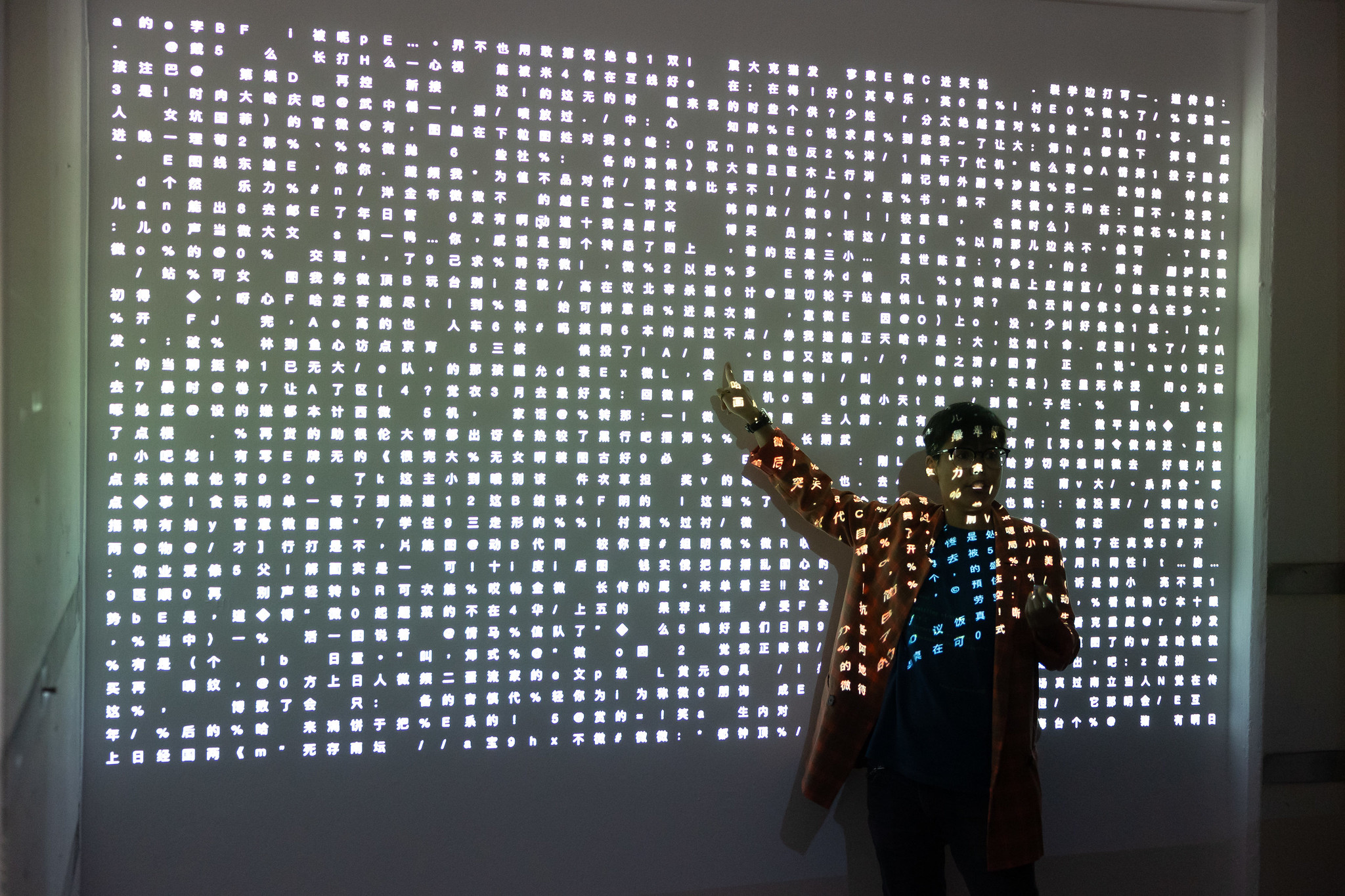Artificial Intelligence & Life Art
Golden Nica
This body of work addresses the chilling scale and effect of state-enacted censorship, enforced through digital infrastructures. The three works presented act as lyrical repositories for suppressed voices, with each technically scrutinizing and poetically portraying tweets censored from Weibo, one of the biggest social media platforms in China. The Unerasable Series explores the politics of erasure and the temporality of voices within the context of digital authoritarianism. It presents the sheer scale of unheard voices by technically examining and culturally reflecting the endlessness, and the wider consequences of censorship.
The series of Unerasable Characters collects unheard voices in the form of censored/erased (permission denied) textual data. This is based on one of the biggest social media platforms in China—Weibo—via the system called “Weiboscope “, a data collection and visualization project developed by Dr. King-wa Fu from the University of Hong Kong. The system has been regularly sampling timelines of a set of selected Chinese microbloggers who have more than 1,000 followers or whose posts are frequently censored.
Jury Statement
This year’s Golden Nica is awarded to the Unerasable Characters Series, a three-part investigation of the scale of digital authoritarianism through the transformation of censored content by some of the very technology used to control it. Artist Winnie Soon (HK) uses machine learning techniques combined with DIY and open source approaches to complicate notions of control and power. (…) In Unerasable Characters I, censored materials are used to generate new content that is bound in a book which, in turn, challenges the definition of “forbidden text.” In the second work, voices—characters—disappear before our very eyes, as chatty textual representations are “censored” in real time. Each successive experience is increasingly frustrating, culminating in Unerasable Characters III, a display of censored posts relating to the COVID-19 pandemic that is devoid of all content except punctuation, emojis, and special characters. (…) By transforming scraped, censored content into “new” experiences that avoid or circumvent surveillance, Soon ultimately questions whether the very same technology that aims to remove information can be hijacked to make the erased unerasable.
Excerpt from the jury statement
Credits
Polly Poon
Dr. King-wa Fu
Greg Surma
rojal.se
John Colenbrander
Australian Centre for Contemporary Art
Microwave International New Media Arts Festival
Winnie Soon (HK/UK)
Winnie Soon is a Hong Kong-born artist coder and researcher interested in the cultural implications of digital infrastructure that addresses wider power asymmetries, engaging with themes such as Free and Open Source Culture, Coding Otherwise, artistic/technical manuals, digital censorship and minor technology. Their works appear in museums, galleries, festivals, distributed networks, papers and alternative written forms, including co-authored books Boundary Images (2023), Fix My Code (2021), and Aesthetic Programming (2020). They are Course Leader at the Creative Computing Institute, University of the Arts London, and also Associate Professor (on leave) at Aarhus University. More info: www.siusoon.net
